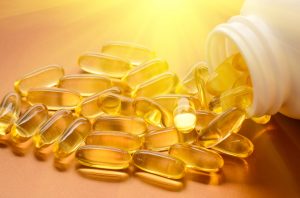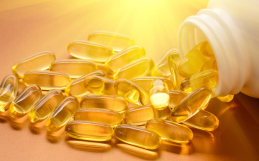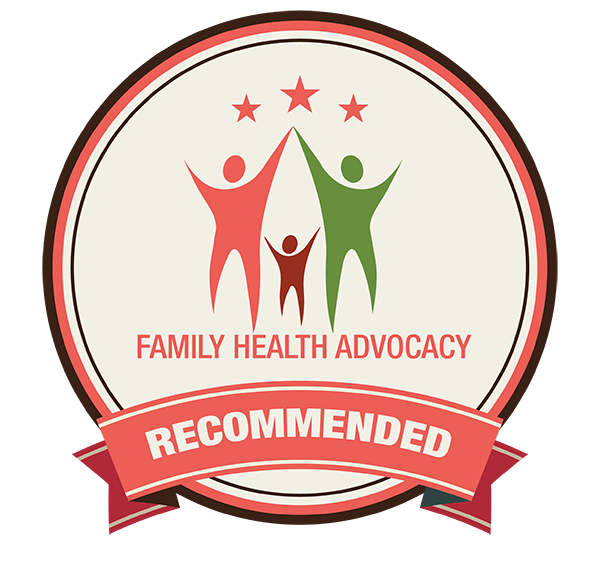Do you get sick often, feel depressed or anxious, have high blood pressure, or restless sleep?
These are all possible signs or symptoms of vitamin D deficiency. Why is vitamin D so important? Read this explanation from the Vitamin D Council:
Vitamin D is important for good overall health and strong and healthy bones. It’s also an important factor in making sure your muscles, heart, lungs and brain work well and that your body can fight infection [including cancer].
Your body can make its own vitamin D from sunlight. You can also get vitamin D from supplements and a very small amount comes from a few foods you eat.”
Vitamin D Deficiency
The #1 cause of vitamin D deficiency is lack of sun exposure. Getting in the sun responsibly without protection and not allowing skin to burn is a great addition to your lifestyle, which optimizes your health and longevity. Also, certain chemicals in plastics, such as BPA, can affect the formation of vitamin D and create a deficiency. That water bottle, receipt, or plastic coffee lid is full of BPA.
Try getting outside 20-30 minutes per day. Food is not a great source of vitamin D ,although the top options are wild-caught salmon and cod liver oil.
You want to take high quality vitamin D3 (not D2) — for most adults 2,000- 5,000 IU per day is enough. I recommend taking the supplement for a period of time and then testing your blood. When supplementing with vitamin D, remember it is fat soluble. Eat with a healthy fat, such as coconut oil, avocado, or almond butter to optimize absorption. My family takes cod liver oil 2-3 times per week along with vitamin D or these drops for the kids.
There’s no doubt that vitamin D is crucial. It affects over 3,000 genes and plays a really important role in many different processes. Vitamin D deficiency is associated with numerous diseases, so we absolutely need to ensure that our body possesses it in adequate levels.
But, as is the case with many other nutrients (perhaps all nutrients), there is a U-shaped curve for vitamin D. Too little of it is not good, but too much of it is also not good. So make sure you are testing, especially if you are taking higher doses. Also, vitamin A and K2 protect you from vitamin D toxicity.
Watch Dr. Axe’s take on Vitamin D deficiency, benefits and what food to eat:
Dr. Oz picks this as the #1 Vitamin to take:
What is the Relationship with Vitamin K2?
If you understand the mechanism of Vitamin K2, you’ll know that one of the main roles of K2 is to make sure that calcium gets into the bones and the teeth and the hard tissues where it belongs and stays out of the soft tissues where it doesn’t belong. And vitamin D, of course, regulates calcium metabolism, too.
Vitamin K is plentiful in green vegetables and can be converted into vitamin K2, but the conversion is pretty inefficient. By itself, vitamin K2 is only found in certain foods, like organ meats, natto (a fermented soy product common in Japan), and cheeses — particularly grass-fed cheese because, as I just mentioned, vitamin K is found in green vegetables, for instance, the grass that the cows eat.
Optimal Vitamin D Levels
Vitamin D absorption is not the same for everyone. The only way to know is to test the blood. For example, optimal vitamin D exposure for those living in equatorial regions is higher than for people living at northern latitudes.
This is a fairly new finding, but it basically means that one person’s optimal vitamin D level is different than another person’s. Unfortunately, we’re not at the point where we can easily identify a person’s optimal vitamin D level. At some point in the future, people will be able to go in and just get a test to determine the optimal intake of vitamin D for them, based on genetics, skin color, latitude, and other relevant factors. This reality isn’t far away, but we’re not there yet.
The 50 ng/mL recommendation from the Vitamin D Council is definitely on the higher side of recommendations. As long as you’re eating nutrient dense food, including grass-fed dairy, fermented vegetables, cod liver oil, and organ meats (primarily liver), then your vitamin A and vitamin K2 needs will be covered and the risk of vitamin D toxicity is low. Supplementation of magnesium and potassium
I still recommend testing your vitamin D levels and getting an accurate number on a regular basis. Don’t hesitate to test before and after a set period of supplementation. I have been doing this for years with my nutrition, exercise, and lifestyle changes to see how they will affect my blood work.
Further Resources
Nerd alert! If you would like to read more on vitamin D, A, K2, and cod liver oil, check out these blogs and video:
- “The Ultimate Vitamin K2 Resource”, and the update Christopher Masterjohn
- “Vitamin D Experts Defend Cod Live Oil”, Weston A. Price Foundation
- “Surprising New Vitamin D Research”, Chris Kresser
- “The Evolution of Diverse Vitamin D Requirements”, Chris Masterjohn













